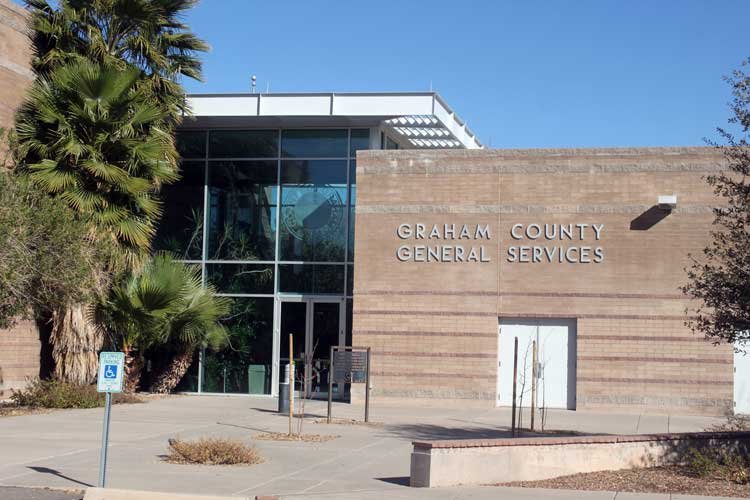California Sues Trump Administration Over Education Funding Cuts
California officials announced on Monday that the state is taking legal action against the Trump administration for blocking an estimated $939 million in education funding. Local districts are labeling this move as “illegal and arbitrary.”
The funds in question, which were approved by Congress, are essential for programs that assist students learning English and support immigrant families. They also contribute to teacher training, after-school initiatives, and classroom technology. In the case of Los Angeles Unified School District, which is the second largest in the country, the expected impact is around $110 million.
California, alongside three other Democrat-led states, is spearheading the lawsuit, representing a total of 23 states. Notably, the Democratic Attorneys General from Kentucky and Pennsylvania, both of whom have Republican lawyers, are involved, as is the Democratic Governor of Pennsylvania. This lawsuit was filed in federal court in Rhode Island on Monday.
On the same morning, officials from the Trump administration stated that they hadn’t had the opportunity to fully assess the lawsuit yet, but no final decision had been made regarding the release of the withheld funds. They mentioned concerns that some of the money may be misused in ways contrary to their policies, including issues surrounding “academic instruction for new English learners.”
Additionally, the Trump administration has been known to shut down initiatives aimed at promoting racial diversity, often viewing them as punitive. This stance has also led to conflicts over LGBTQ+ issues and opposition to support for undocumented immigrants living in the U.S.
Although the funds at stake represent less than 1% of California’s overall education budget, their absence could have significant repercussions. The money is already accounted for, affecting staffing and program planning.
“There’s no logic here; the Trump administration abruptly froze billions in education funds just weeks before the school year starts,” California Attorney General Rob Bonta expressed in a statement. “This action jeopardizes programs that provide after-school and summer learning opportunities, teach English to students, and enhance classroom skills.”
The complaint argues that the administration doesn’t have the constitutional authority to “unilaterally overturn budgets enacted by both houses of Congress and signed into law.”
The case is being led by Attorneys General from Massachusetts, Colorado, and Rhode Island. Colorado Governor Jared Polis discussed the situation in a recent webinar with activists and public servants.
“Many teachers are left uncertain about whether they will report to work, given that these funds are critical for their roles. This decision to withhold billions is incredibly last-minute, leaving schools in a tough spot just days or weeks before teachers are scheduled to start,” Polis commented.
Funding Freeze Creating “Chaos”
The blocked funds are linked to programs that have received financial support for decades. Annually, the U.S. Department of Education typically releases about 25% of these funds after July 1st, allowing districts to initiate or continue their essential efforts.
“The states involved have adhered to all funding conditions specified by law and have state plans already approved by the Department of Education,” a statement from Bonta’s office noted.
This year, in a departure from past practice, instead of distributing the funds, the U.S. Department of Education informed state education departments on June 30 that these programs would not be funded.
The communication included a detailed list of federally designated programs affected, such as Title III-A which supports English learners, along with Title IC aimed at helping migrant workers with educational challenges. All funding for these programs has been withheld.
Other similarly impacted programs provide training for teachers and administrators, focus on enhancing technology for academic achievement, and fund after-school and summer initiatives.
Bonta’s office described this funding freeze as throwing next year’s plans into disarray. “Local educational institutions have already prepared their budgets, staffing plans, and contracted services under these grants,” it stated.
Los Angeles Unified plans to use district reserves to support affected programs, but this funding was intended for other longer-term needs. Ultimately, it could lead to hundreds of positions being impacted due to this estimated $110 million shortfall.
When schools began reopening nationwide in August, the ramifications became more pronounced, with immediate effects being felt.
For example, the Thomasville Community Resource Center in Georgia had to cut its summer program, impacting over 300 children across two counties three weeks early. Similarly, in Missouri, the Laclede Literacy Council saw 16 out of 17 staff members let go due to a lack of funding for adult education.
In Texas, the shortfall in anticipated education funding could be around $660 million. This situation is expected to impact one in four students receiving education support. From 2024-25, Texas was to receive over $132 million in federal funding specifically to assist these students.
Increasing Legal Challenges
The legal actions surrounding the Trump administration’s decisions reflect ongoing tensions between California and the administration over funding and policy issues.
Just last week, the Trump administration initiated a lawsuit against California regarding the inclusion of transgender athletes in school sports teams corresponding with their gender identity, citing federal civil rights violations. This legal challenge also poses a risk to billions in federal education funding.
California law allows for participation in campaigns based on students’ gender identity, which aligns with the state’s education policy.
The Trump administration has claimed that the potential financial stakes in this crisis are substantial, citing the $44.3 billion allocated to California this year.
“The risk extends to all federal funding tied to California’s public agencies,” a senior U.S. Department of Education official warned.
Additionally, the department has canceled or revised contracts exceeding $1 billion, changing grants to either eliminate what they view as non-compliant diversity, equity, and inclusion efforts or align with management objectives.
Overall, California has been embroiled in numerous legal battles against the Trump administration’s actions.
Bonta criticized the situation: “It seems like President Trump is more focused on advancing his political agenda at the expense of a generation of students. This funding freeze is blatantly illegal, and I believe the court will ultimately agree.”
While the lawsuit against the Trump administration has resulted in some temporary injunctions, it hasn’t halted all significant actions related to education and other sectors.
The Trump administration maintains that its objective is to return educational control to the states and eliminate wasteful spending, particularly amid ongoing cultural debates.
















